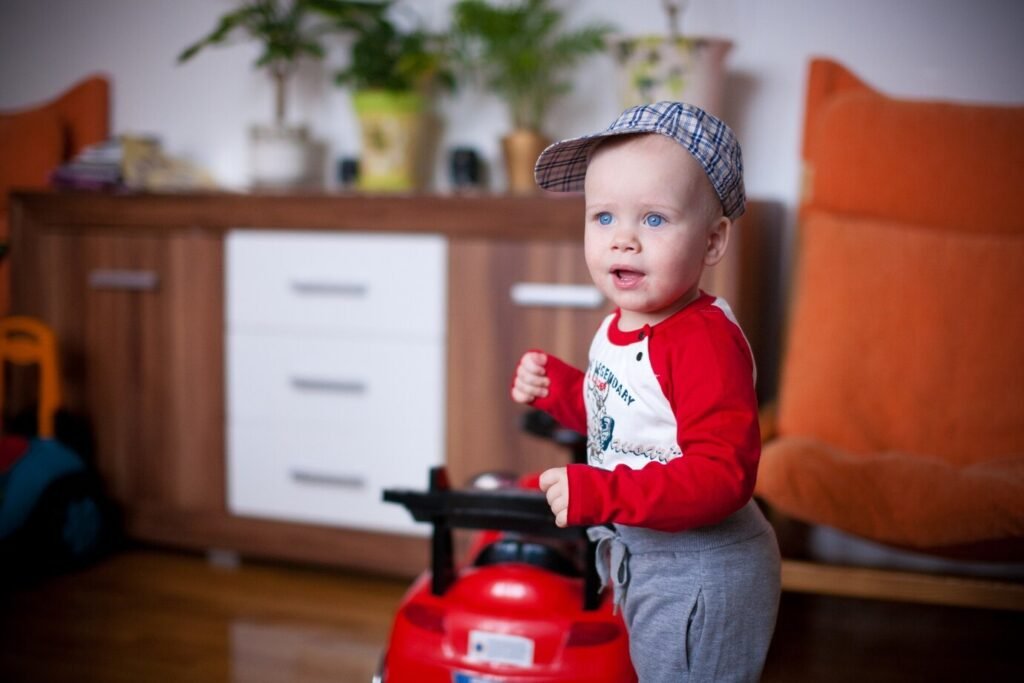Introduction Baby That Can Hoot Ever heard of a baby that can hoot? Sounds like a cute mix between a baby and an owl, right? Well, you’re not too far off! Babies make all sorts of funny and surprising sounds, but when they start “hooting,” it’s a whole new level of adorable. In this blog post, we’ll dive into what makes these sounds so special, why some babies do it, and what it means for parents. If you’re curious about why your little one is imitating owls, keep reading!
Why Do Babies Make Hooting Sounds?
Babies communicate in the most unexpected ways. While most parents are familiar with coos, giggles, and cries, hearing a baby hoot can be a delightful surprise. So, what’s up with the hooting?
Here are a few reasons why your baby might sound like a tiny owl:
- Exploring Their Voice: Babies are learning machines, especially when it comes to using their voice. Hooting is just one of the ways they test their vocal cords. It’s a playful experiment with sound.
- Mimicking Sounds: Babies often mimic what they hear. If they’ve heard an owl, a bird, or even a funny noise you made, they might try to copy it. They’re like little parrots (or owls, in this case)!
- Attention-Seeking: Babies quickly learn which sounds get a reaction. If hooting makes you smile, laugh, or pay attention, they might keep doing it just to see you react.
- Expressing Happiness: Sometimes, those hoots mean your baby is just in a really good mood. Hooting could be their way of expressing joy and excitement.
Is It Normal for Babies to Hoot?
Absolutely! Babies are naturally curious and love to explore new sounds. Hooting is just one of the many adorable noises they make. However, if you’re concerned about your baby’s sounds or they seem uncomfortable, it’s always a good idea to check with your pediatrician. But, in most cases, hooting is just a baby’s way of having fun with their voice.
When Do Babies Start Making Hooting Noises?
Babies start experimenting with different sounds as early as a few months old. You’ll hear coos, gurgles, and yes, even hoots. This playful exploration usually starts around 3 to 4 months and can continue as they grow. By the time they reach 6 to 9 months, many babies have quite a range of sounds they love to make.
How to Encourage Your Baby’s Vocal Play
If you’re loving the hoots and want to encourage your baby’s vocal play, here are a few tips:
- Talk to Your Baby Often: Engage in conversations with your baby, even if they can’t respond with words yet. They’ll pick up on the sounds you make and try to mimic them.
- Make Funny Noises: Go ahead, make that owl sound! Babies love imitating, and if you hoot, they might join in the fun.
- Read Books with Animal Sounds: Books that include sounds from animals can inspire your baby to make similar noises. It’s educational and entertaining.
- Play Music: Songs with varied sounds and rhythms can encourage your baby to try new vocal experiments. You might just end up with a baby who can hoot, hum, and sing!
What If Your Baby Hoots Nonstop?
So, you’ve got a hooting baby, and they just won’t stop. While it’s super cute at first, it might get a bit much after a while. Don’t worry; this phase won’t last forever. Here’s what you can do if the hooting becomes a 24/7 concert:
- Distract Them with Toys: Offer a toy that makes a different sound to capture their attention.
- Introduce New Sounds: Show them how to make other noises. They might move on to babbling, singing, or even trying to say their first words.
- Turn It into a Game: Hoot back and forth. Make it a fun interaction. This way, your baby learns about conversation skills while having a blast.
Can Hooting Be a Sign of Something Else? Baby That Can Hoot
While hooting is usually harmless, parents should watch for other signs that might indicate something more serious. If the hooting comes with unusual movements, repetitive behaviors, or if your baby seems overly sensitive to sound, it might be worth discussing with your pediatrician. But remember, most of the time, it’s just your baby being their adorable, playful self.
Conclusion Baby That Can Hoot
A baby that can hoot is one of those delightful surprises of parenthood. It’s a phase of vocal exploration, a playful experiment, and a way for your baby to get your attention. Encourage it, have fun with it, and cherish these cute moments—they grow up so fast!
Got a hooting baby at home? Embrace the sounds, laugh along, and maybe even hoot with them. Who knows, you might just discover your new favorite way to communicate!
FAQs Baby That Can Hoot
1. Why does my baby make hooting sounds?
Your baby is likely exploring their voice, mimicking sounds they’ve heard, or just trying to get your attention. It’s a normal part of their development.
2. Is it okay to hoot back at my baby?
Yes! Babies love interaction, and if you hoot back, it can become a fun little game. Plus, it encourages their communication skills.
3. Should I be concerned if my baby hoots a lot? Baby That Can Hoot
In most cases, no. Babies love making sounds, and hooting is just one of them. If your baby seems uncomfortable or has other concerning symptoms, consult your pediatrician.
4. When do babies start making these kinds of sounds?
Babies begin experimenting with sounds around 3 to 4 months old. You might hear coos, giggles, and hoots as they explore their vocal range.
5. How can I encourage my baby to make more sounds?
Talk, sing, and make funny noises around your baby. Engage with them, read books, and play music. They’ll love imitating you and trying out new sounds! Baby That Can Hoot
